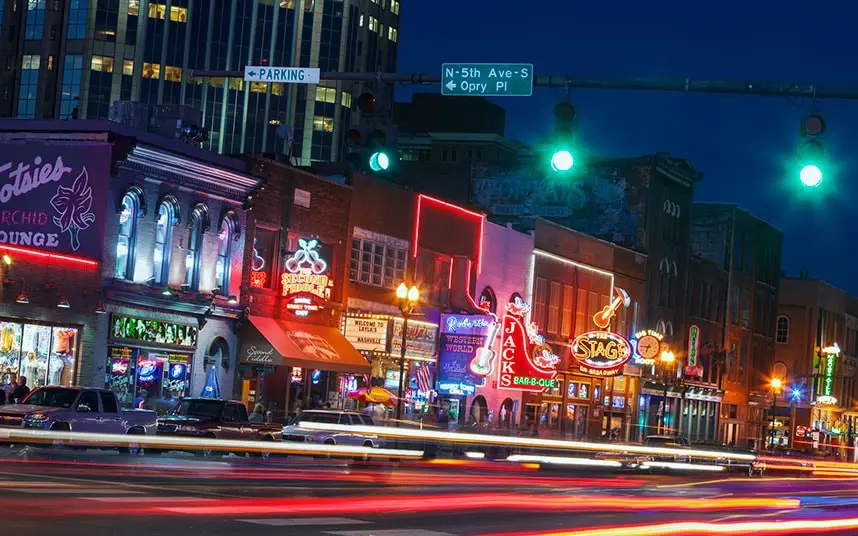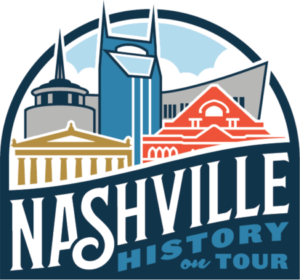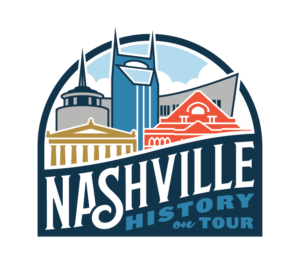Why you’ll never understand the US unless you’ve been to Nashville
By Graham Boynton
London Telegraph
30 April 2018
Whoever said Nashville was nothing more than nirvana for country music bumpkins clearly hasn’t been there in the past 20 years.
During that time, this lovely, manageable Southern city, full of genuinely friendly people, has become a cool urban centre that is frequently voted America’s favourite city. Film stars, musicians, fashion designers, big-city chefs and the rest have been migrating here in their droves. Today, it is the tourists who wear Stetsons and cowboy boots. The locals are in Gucci, Prada and Miu Miu.
More than 100 new restaurants opened last year, and it is estimated that in the next five years more than 12,000 new hotel rooms will come on stream. The big news, however, is that from May 1 British Airways will be operating its first direct flights to Nashville from London. Until now the journey from London has taken 13 or 14 hours via Atlanta or Chicago. Now it will be eight hours by Dreamliner.
Nashville may have an excellent country music scene, but it boasts much more than that.
“It’s a game-changer,” says Butch Spyridon, Nashville Tourism’s CEO, “that gives us the Good Housekeeping seal of approval.” Naturally, he expects British travellers to be blown away, as “not many cities have the soul, the creative thread and the heartfelt hospitality of Nashville”.
Marketing speak this may be, but in two decades of travelling to Nashville, Tennessee’s state capital, I have always found this to be true. The songwriter Barry Dean, from Kansas, says it is the most “collaboratively creative city in America.”
For all its collaborative qualities and contemporary characteristics, the thing that has repeatedly drawn me here is its special place in US history – a storm-tossed journey, book-ended by the civil war and the civil rights movement. For anyone interested in the latter, this is the year to visit, for it is the 50th anniversary of the assassination of Martin Luther King, and it is not widely known that Nashville played a significant role in the movement.
David Ewing is a local polymath – historian, lawyer, author and tour guide – who spends a morning walking me through the story. We start at the Civil Rights Room at the Nashville Public Library, which has moving, and sometimes shocking, footage of the lunch-counter protests in 1960. And we end up sitting at the Woolworth’s lunch counter where protesting students were refused service because of the colour of their skin.
“We had the same segregation here as Mississippi and Alabama,” says Ewing, “but not the violence. We were ground zero for civil rights because there were three major African-American colleges here.”
Among the Nashville activists were two students who were to become key figures in the national civil rights movement – John Lewis, who marched with King from Selma to Montgomery, and Diane Nash, who helped organise the Freedom Rides across the South.
The lunch counter sit-in campaign was notable for its emphasis on disciplined non-violence in the face of appalling provocation, and it set an example that resonated through the South. The students were marched off to jail in handcuffs, singing We Shall Overcome, the first time the song that was to become the anthem of the civil rights movement was sung in protest. Sitting in Woolworth on 5th, which reopened in February as a Southern restaurant, talking to Ewing about these seminal moments in situ, is one of the highlights of this trip.
My thirst for history sated, it was time to throw myself at hedonistic Nashville, to hit the honky-tonks, cruise the bars and indulge in the new Nashville culinary scene. Most of the new restaurants tip their hats at Southern cuisine but employ the lighter nouvelle touches of New York and LA. Henrietta Red, in the up-and-coming Germantown neighbourhood, opened last year and is run by Nashville native Julia Sullivan. She worked in New York for eight years, including a stint with Thomas Keller at Per Se, and says she is using “Southern ingredients and Southern flavours with a lighter, more sophisticated presentation.”
Julia Jaksic is another New York transplant, and her Café Roze, which opened last year in fashionable east Nashville, is also attracting a lot of attention. The major influencer of the new culinary scene is Sean Brock, whose Rutledge Hill restaurant Husk is set in a lovely 19th-century house and serves, among other things, the best hamburger I’ve had in years. And if you’re tired of the constant whine whine, twang twang of country music, the background sounds at Husk are pure Delta blues.
Another award-winning restaurant I would recommend is Deb Paquette’s Etch, just a short walk from the Country Music Hall of Fame, although it is decidedly un-Southern. Paquette is called the “godmother of nouvelle Nashville cuisine” and when Etch opened she insisted “there will be no Southern food here”. She says: “We do the global thing and our passion is sauces, at least three or four sauces on each plate.” The venison with pomegranate walnut sauce and confit pearl onions was the dish of the week.
As for cocktail bars, the choice is infinite. I recommend The Patterson House, a dark, luxurious speakeasy with a 30-stool bar and expert bartenders who serve some of the most exotic – and dramatically titled – cocktails in the city: Missionary’s Downfall; Death In The Gulf Stream; No Bullet, No Ballot. My vote goes to the simply named Improved Whiskey Sour, an artful blend of Old Forester Single Barrel bourbon, maraschino, egg white, absinthe and bitters.
The other recommended bar is Attaboy in east Nashville, an unprepossessing bunker from the outside, a dimly lit speakeasy inside. You have to knock on the front door and wait to be admitted. Attaboy is run by two indigenous Nashvillian barmen who really know their Southern whiskies. It was here that I tasted the elusive W L Weller Special Reserve bourbon, a smooth, wheat-based sour mash, and developed a crush that turned out to be unrequited, as I couldn’t find a bottle in any of Nashville’s liquor stores.
Nashville is, of course, the heartland of American music – and there is something for every taste. I would recommend a visit to the Ryman, the so-called “mother church of country music”, which during winter months hosts the Grand Ole Opry. The most famous area is Lower Broadway, where the honky-tonk bars have all kinds of bands playing covers from morning until after midnight. It’s not for purists, but for a rackety, rollicking Saturday night out, it takes some beating. The best are Robert’s Western World, Tootsie’s Orchid Lounge, The Stage on Broadway and Layla’s.
For all the changes, all the sophistication, all the cosmopolitanisation of the new Nashville, as I am about to leave, my favourite US city is engulfed in a Southern gothic drama that reassuringly harks back to former times. Megan Barry, the much-loved mayor of Nashville, is featured on television, pleading guilty in court to “felonious theft” of taxpayers’ money, having recently confessed to a steamy affair with the head of her security team. Her lover, Sergeant Rob Forrest, is also shown being led into court to plead guilty. Their affair, it seems, was being partly funded by Nashville’s taxpayers.
An hour later, Megan Barry resigns tearfully, again on live television, from the post she has held for the past three years of the city’s renaissance. “God will forgive me,” she says, “but Nashville doesn’t have to.”
Political commentators express fears that this scandal may affect tourism to Nashville. It won’t.
Source: London Telegraph


